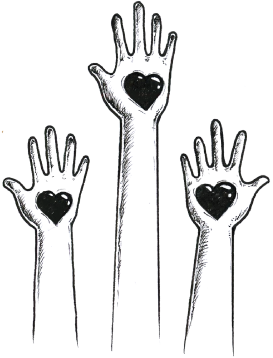March 27, 2013
Capturing indigenous knowledge: Thirteen videos that show the world as a laboratory
contributor: Rob Goodier
Thirteen video interviews in a YouTube playlist and a research paper expound the value of indigenous knowledge, the knowledge gleaned from the world throughout millennia that is not formally enshrined in academia. Ignoring indigenous knowledge can cripple engineering projects, and learning from it can enhance them, says Khanjan Mehta, Vice Provost for Creative Inquiry and Director of the Mountaintop Initiative at Lehigh University and former Director of Penn State’s Humanitarian Engineering and Social Entrepreneurship Program, which created these videos.
Carolyn Sachs tells a story of women tending maize fields in Swaziland who ignored the advice from visiting agricultural scientists. The consultants said the farmers should weed their fields, but what looked like weeds to the visitors were actually dietary staples and a source of Vitamin A that the visitors did not recognize. The farmers’ expertise is an example of indigenous knowledge, the body of information and talents that people have acquired informally since before recorded history.
Dr. Sachs, a professor of agricultural economics and rural sociology at Pennsylvania State University in University Park, Penn.. joins Dr. Mehta and 10 other colleagues to explore that indigenous knowledge and tell stories from their work in 13 brief video interviews. The series, AcademIK Connections, has a home on HESE’s YouTube channel.
See the AcademIK Connections playlist
“The video clips delve into a very wide variety of issues – from the limitations of language, diverse worldviews, the meaning of poverty, self-determination and portraying a culture, science education that builds on indigenous knowledge, etcetera,” Dr. Mehta told E4C.
In his interview, Bruce Martin explains how Ojibwe fishermen in northern Minnesota read the water to predict the location of the catch and the day’s weather forecast, sometimes better than fish-finding sonar and the local weather channel. In another video, Audrey Maretzki tells the story of a woman in a nutri-business cooperative in Kenya who described the nutritional values of two grains. Boys raised on maize are fat and boys raised on finger millet are wiry and will beat the maize-fed boys in a fight, the woman said.
Nature is one gigantic research lab and over millennia, people have learned from it by way of trial and success – Khanjan Mehta
“That hit me like an ‘aha’ moment, because I knew that wimby [finger millet] was a more nutritious grain than corn. And to have her tell that in her own way was a recognition on my part that in fact there was a lot of knowledge there that we needed to figure out ways to capture,” Dr. Maretzki says in her interview.
As those examples demonstrate, knowledge that is not captured in academic journals is not the only form of knowledge, Dr. Mehta says in his introductory message for the series. Ignoring that knowledge can hinder development projects, and embracing it can lead to success and also discovery, Dr. Mehta says.
“Nature is one gigantic research lab and over millennia, people have learned from it by way of trial and success. They have inherited and acquired vast amounts of knowledge which have enabled them to survive and to thrive,” Dr. Mehta says.
Dr. Mehta published a paper on this subject with the National Collegiate Inventors and Innovators Alliance, and he has another in press in the Journal of Community Engagement and Scholarship.
Abstract: Leveraging Indigenous Knowledge to Foster Developmental Entrepreneurship
Indigenous knowledge is about the ways of knowing, seeing, and thinking that are passed down orally from generation to generation, and which reflect thousands of years of experimentation and innovation in all aspects of life. Indigenous knowledge has value not only for the culture in which it develops, but also for scientists and entrepreneurs seeking solutions to community problems. Considering indigenous knowledge is essential when conceptualizing, validating, and implementing entrepreneurial ventures in developing communities. Penn State is producing a series of thirteen video clips of 6-8 minutes each capturing compelling stories about the importance of indigenous knowledge systems in developing and implementing entrepreneurial strategies to address global challenges and foster development. The video stories discuss how indigenous knowledge helped solve a significant problem, as well as the processes used to uncover indigenous knowledge, validate it, and apply and integrate it into community development projects in various parts of the world.
tags : indigenous, indigenous cultures, indigenous knowledge, Khanjan Mehta





19-07-2016 08:24:35 AM
Jon says:
06-04-2016 05:37:43 PM
Capturing Indigenous Knowledge says: